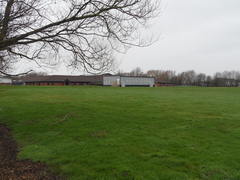Charitable gifts revert to the donor, or his or her heirs, if they cease to be used for the purpose specified by the donor. The Court of Appeal applied that principle in a case concerning a wealthy financier’s early 20th century gifts of land for the establishment of a village primary school.
 In 1914 and 1928, the financier donated two plots of land, measuring just under an acre in total, to be used as a site for school playing fields and buildings. The gifts were expressed to be for no other purpose whatsoever. The school on the site was, however, demolished in 2006 and a new school built on an adjoining site.
In 1914 and 1928, the financier donated two plots of land, measuring just under an acre in total, to be used as a site for school playing fields and buildings. The gifts were expressed to be for no other purpose whatsoever. The school on the site was, however, demolished in 2006 and a new school built on an adjoining site.
The donated land lay vacant for more than a year before the local authority, which owned it, sold it and the rest of the former school site to a property developer for over £1.3 million. In those circumstances, the donor’s heirs claimed entitlement to more than 90 per cent of that sum. Their argument that the donated land had reverted to them when it ceased to be used for the purposes of a school was, however, rejected by a judge.
In resisting the heirs’ challenge to that decision, the council pointed out that money raised from the sale had already been spent on building the new school. On that basis, it was argued that it had gone towards providing an education for local children and had thus been used for the purpose envisaged by the donor.
In upholding the appeal, however, the Court found that, after the demolition of the old school, it could not be said that the vacant land was being used as a site for a school or otherwise for the purposes of education, or that there was any prospect of such use. Had the site been used as a playground or for some other educational purpose during that period, the outcome would have been different. The ruling meant that the council held over £1.2 million of the sale proceeds on trust for the heirs.



